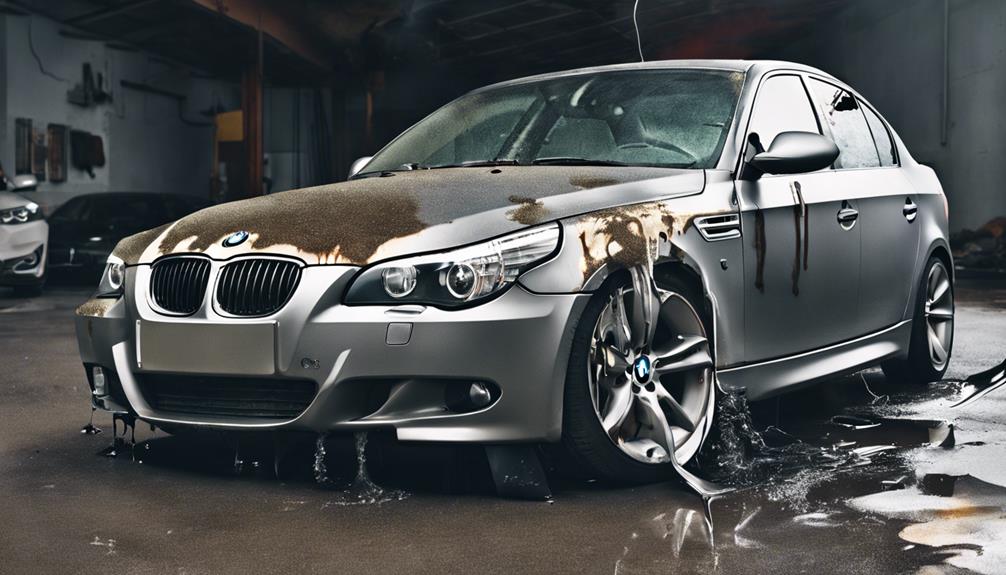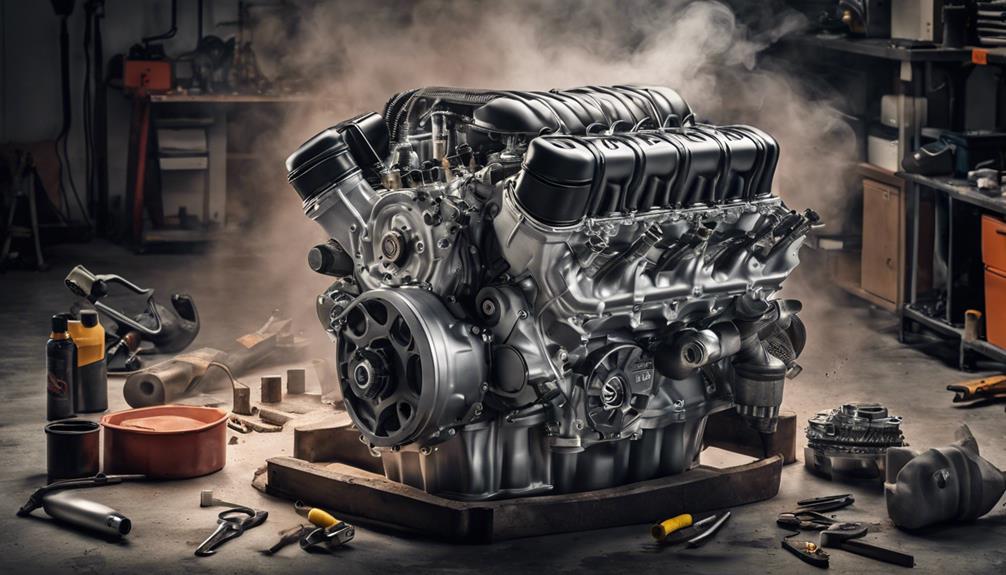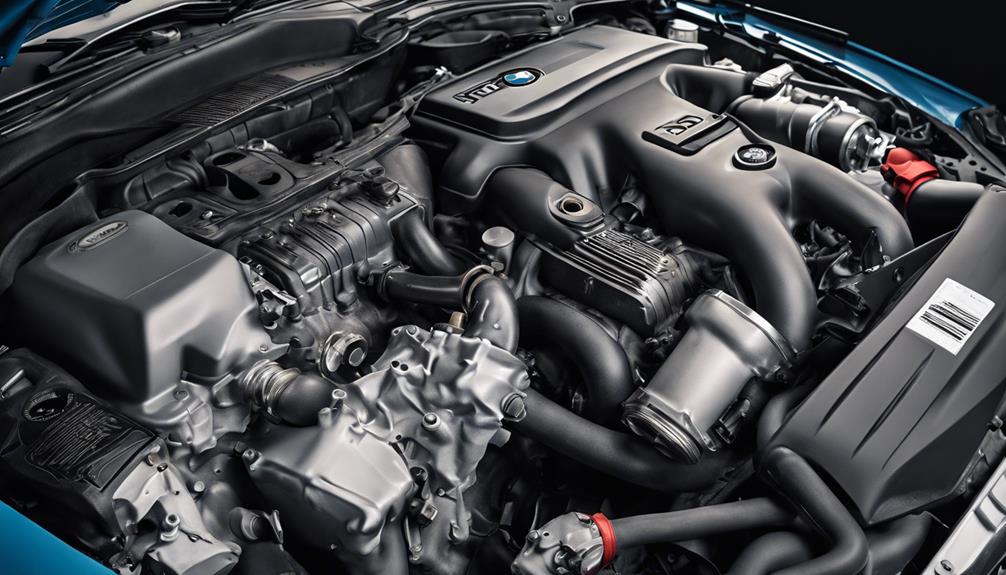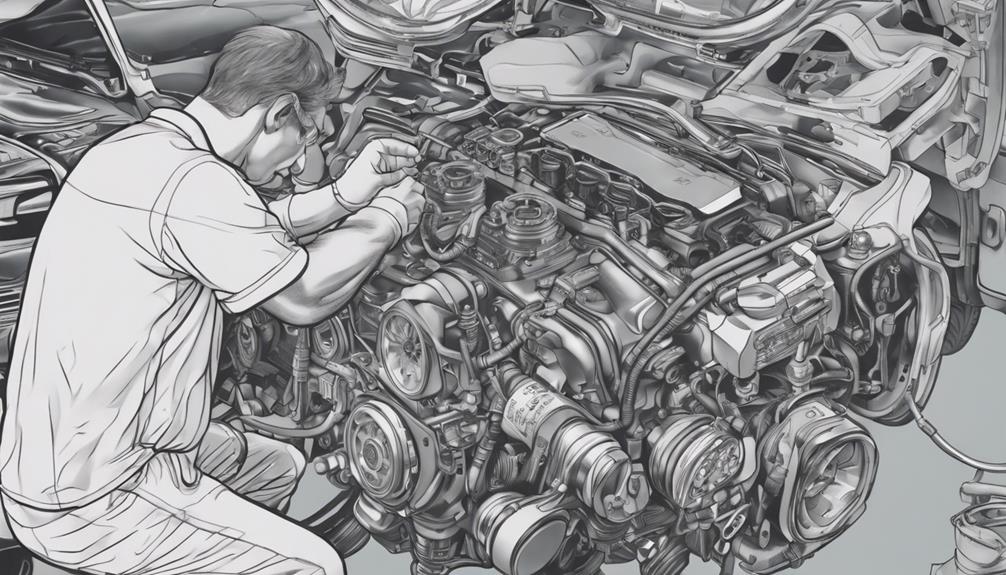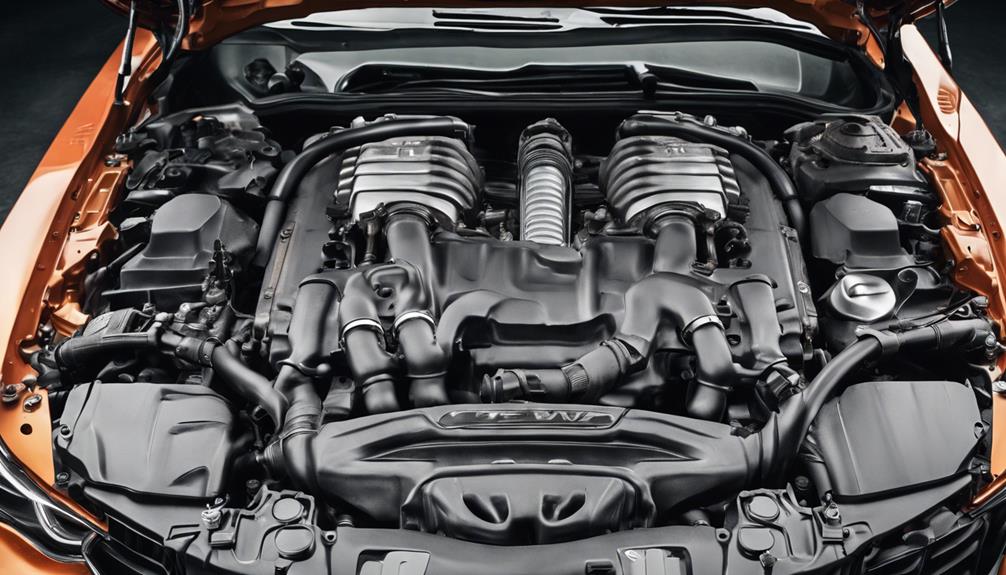So, you've set your sights on a BMW E60 – get ready for a wild ride! From pesky rod bearing issues to finicky vanos pumps and solenoids messing with your engine's timing, this beast comes with its fair share of challenges. And don't even get started on those high-pressure direct fuel injectors causing rough idling – a real headache! To top it off, there's the SMG clutch components that need proper care for smooth gear shifts. Oh, and let's not forget the oil coolers that love to spring leaks when you least expect it.
Remember, stay on top of timely oil changes and use the correct oil type to prevent premature failures. But hey, if you want to learn more about dealing with these obstacles, there's plenty more to discover!
Key Takeaways
- Electrical issues are common in BMW E60, affecting various systems.
- Cooling system problems can lead to overheating and engine damage.
- Oil leaks are a frequent issue in the E60, requiring timely repair.
- Suspension failures may occur due to wear or inadequate maintenance.
- Transmission malfunctions, especially in SMG variants, can be costly to resolve.
Rod Bearings
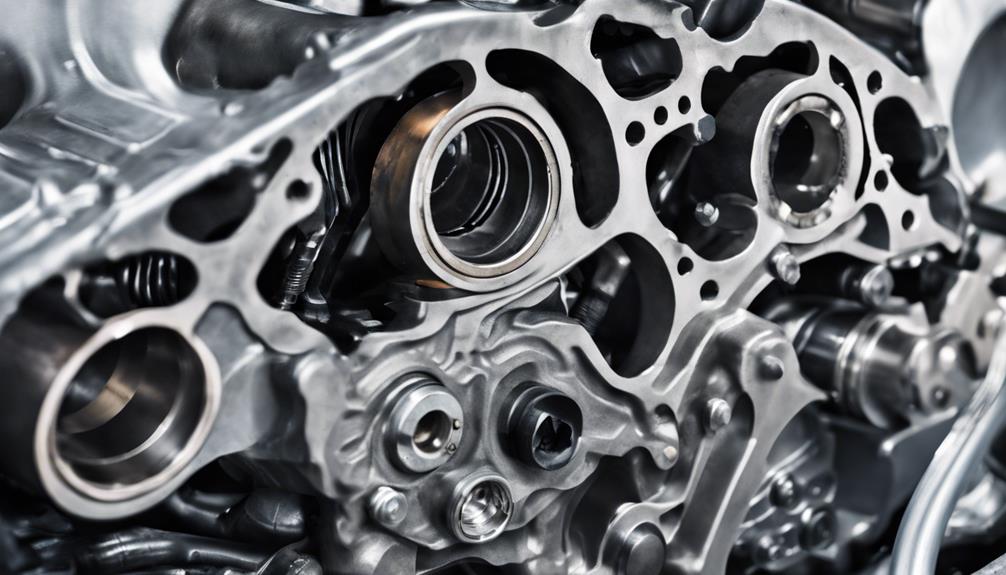
If you're driving a BMW E60, beware of the ticking time bomb lurking within your engine: the notorious rod bearings. These little components might seem insignificant, but in the world of BMW E60 M5 models, they hold the power to cause chaos if not properly maintained. Imagine your engine revving up, ready to reveal its full potential, only to be stopped by worn-out rod bearings leading to catastrophic engine failure. It's a nightmare no BMW enthusiast wants to experience.
Rod bearings in BMW E60 M5 models aren't to be taken lightly. Regular inspections and maintenance are your best friends when it comes to preventing these pesky parts from causing major headaches and draining your wallet. Upgraded aftermarket rod bearings can offer a silver lining, enhancing durability and longevity, especially in high-performance scenarios where the engine is pushed to its limits.
Vanos Pump/Solenoids
So, you're revving up that BMW E60, but are you getting the smooth performance you expect from a luxury ride?
Enter the Vanos pump and solenoids, your engine's timing maestros.
When these components start acting up, get ready for a symphony of rough idling, power dips, and potentially explosive misfires – not the kind of performance you paid for!
Time to roll up your sleeves, tackle that costly repair, and maybe even consider an upgrade for a smoother ride ahead.
Vanos Pump Functionality
The functionality of the Vanos pump in BMW E60 models plays a critical role in controlling the variable valve timing system, influencing engine performance and efficiency.
Imagine this: the Vanos pump as the maestro of your engine orchestra, conducting precise timing adjustments for best power and fuel consumption.
When this pump falters, it's like having a conductor who's tone-deaf – resulting in rough idling and decreased efficiency.
To keep your BMW purring like a contented cat, regular check-ups on the Vanos pump are a must.
Remember, a healthy pump equals a happy engine.
Solenoid Replacement Process
Picture yourself as the mechanic orchestrating the replacement process for the Vanos pump solenoids in your BMW E60, ensuring precision in oil flow regulation and high-quality engine performance. When replacing the solenoids, remember they are essential for regulating oil flow to the vanos pump, impacting the engine's timing adjustments. Here's a handy table to guide you through the solenoid replacement process:
| Steps to Replace Solenoids | Tips for Success |
|---|---|
| 1. Disconnect battery | – Label connectors |
| 2. Remove engine cover | – Keep track of screws |
| 3. Locate solenoids | – Use proper tools for removal |
| 4. Replace solenoids | – Double-check connections |
Troubleshooting Common Issues
When troubleshooting common issues with the Vanos pump and solenoids in your BMW E60, careful attention to symptoms and diagnostic steps is crucial for effective resolution.
If you notice rough idling or a decrease in engine performance, it could indicate problems with the Vanos pump/solenoids.
Keep an eye out for warning lights on the dashboard, as they might signal a failure in these components.
Since replacing the Vanos pump/solenoids can be a pricey affair, it's wise to address any issues promptly to avoid further damage.
Issues with these components can disrupt your variable valve timing, impacting your engine's efficiency.
Injectors
Wondering why your BMW E60, particularly the 535i, is exhibiting rough idling and misfires? Well, it might just be those pesky injectors causing all the commotion. These high-pressure direct fuel injectors in your BMW E60 are known to act up, leading to a whole lot of engine drama. When your injectors start to go rogue, you'll notice a drop in engine performance, rough idling that feels like your car is doing the cha-cha, and misfires that sound like a beatboxing competition under your hood.
Unfortunately, replacing these injectors doesn't come cheap – we're talking anywhere from $600 to $1200 per injector. Ouch! Regular maintenance and keeping an eye on those injectors can save you from shelling out big bucks down the road. So, if your BMW E60 is acting up, don't overlook the injectors; they may just be the mischievous culprits causing all the trouble.
SMG Clutch Components
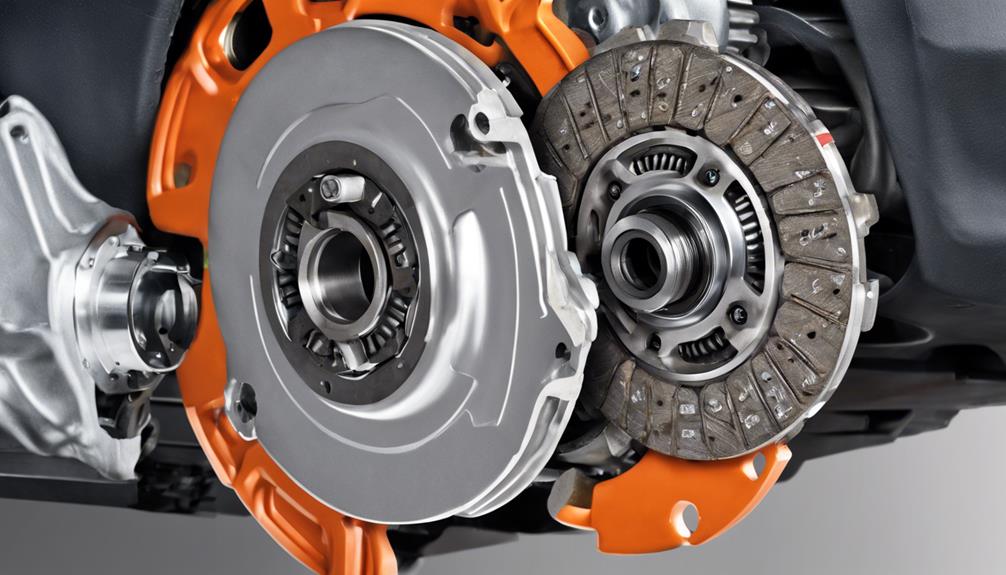
If you own a BMW E60, chances are you've encountered the notorious challenges associated with its SMG clutch components. These components are like the unsung heroes of your transmission system, working tirelessly to guarantee smooth gear shifts. However, they're prone to premature wear and failure, leading to issues such as rough shifting and transmission woes. Imagine this: you're cruising down the road, and suddenly your BMW starts acting like a confused teenager learning to drive – jerky and unpredictable. That could be a sign of trouble with your SMG clutch components.
When these components decide to call it quits, it's not just an inconvenience; it can pose safety risks and make your BMW feel like it's lost its mojo. Replacing these parts doesn't come cheap, and the labor involved can make you appreciate the intricate dance happening within your transmission. To prevent major headaches down the road, regular maintenance and inspections of your SMG clutch components are paramount. Give them some care, and they'll keep your BMW shifting smoothly for miles to come.
Oil Coolers
Hey, you might want to keep an eye on those oil coolers in your BMW E60 because they've a knack for springing leaks. When those coolers start dripping, you could end up with a messy mix of oil and coolant that'll turn your engine into a sauna.
Trust us, replacing those faulty oil coolers sooner rather than later could save you from a hot mess and a hefty repair bill!
Leaks in Oil Coolers
Dealing with oil cooler leaks in your BMW E60 can be a slippery slope that requires immediate attention to prevent engine complications. These leaks are like sneaky little troublemakers causing oil loss, which can mess with your engine's lubrication and performance. Picture this: your engine, thirsty for oil, is left high and dry due to these leaks.
To avoid a hot mess, getting those oil coolers replaced is a must. Ignoring the leaks might lead to overheating, and let's face it, nobody wants their engine to throw a tantrum and fail on them.
Overheating Issues
When it comes to your BMW E60, overheating problems linked to faulty oil coolers can be a real headache to deal with. Oil coolers play an essential role in maintaining the right temperature for your engine. When these coolers go awry due to leaks, clogs, or internal malfunctions, it's like your car deciding it's time for a steamy spa day – except your engine isn't a fan of sauna sessions. To help you better understand the importance of oil coolers in your BMW E60, take a look at the table below:
| Common Issues with Oil Coolers |
|---|
| Leaks |
| Clogs |
| Internal Malfunctions |
| Engine Overheating |
| Potential Damage |
Keeping a close eye on your oil coolers and addressing any issues promptly can save you from a fiery situation.
Replacement Cost Considerations
Considering the important role oil coolers play in maintaining your BMW E60's engine temperature, understanding the replacement cost considerations becomes essential for responsible vehicle ownership.
The cost of replacing oil coolers for your BMW E60 can vary between $400 to $800, factoring in both parts and labor. Due to potential leaks or malfunctions in the cooling system, oil cooler replacement is a common maintenance task.
While DIY kits are available for approximately $200, it's advisable to opt for professional installation to guarantee proper functioning. Neglecting oil cooler issues can result in engine overheating and potential damage, highlighting the importance of prompt attention.
Regularly inspecting oil coolers during routine maintenance can help prevent costly repairs down the road.
Premature Failures
Premature engine failures in BMW E60 models can strike unexpectedly, often before the odometer hits 100,000 miles. Picture this: you're cruising down the road, feeling the power of your BMW E60, when suddenly, sputter, clunk, silence – your engine decides it's time to take a break permanently.
These premature failures are like uninvited guests that not only disrupt your ride but also empty your wallet faster than you can say 'maintenance costs.' It's a harsh reality that timely oil changes are the unsung heroes in preventing these engine disasters.
Using the wrong type of oil is like giving your engine a potion it can't handle, leading to an early demise and a significant hit on your resale value. So, take heed, dear BMW E60 owner, and pamper your engine with the right oil – it might just save you from the heartache of premature engine failures and the pain of costly repairs.
Engine Problems Before 100k Miles

If you thought your BMW E60 was in the clear before hitting the 100,000-mile mark, buckle up for potential engine problems that could throw a wrench in your smooth ride. Here's what you need to know:
- Misfire Issues: Your BMW E60 may experience misfires due to faulty ignition coils, causing rough idling and reduced performance.
- Oil Leaks: Keep an eye out for oil leaks, which can stem from gasket failures or worn-out seals, leading to oil consumption and potential engine damage.
- Coolant System Failures: Watch for coolant system failures like water pump malfunctions or radiator issues that can result in overheating and engine breakdown.
- Carbon Build-up: Carbon build-up on intake valves is a common problem in BMW E60 engines, affecting performance and fuel efficiency.
Don't let these engine problems catch you off guard; regular maintenance and timely repairs can help you avoid costly setbacks and keep your BMW E60 running smoothly for miles to come.
Timely Oil Changes
You know that feeling when your BMW E60 purrs like a content kitten after a fresh oil change? That's because timely oil changes are like a spa day for your engine – keeping it clean, happy, and performing at its best.
Importance of Maintenance
Regularly maintaining your BMW E60 through timely oil changes is the key to ensuring peak performance and longevity of your vehicle. Here's why staying on top of your oil changes is essential:
- Engine Health: Timely oil changes prevent engine issues and keep your BMW running smoothly.
- Correct Oil Usage: Using the right type of oil is essential to prevent premature failures and maintain ideal engine health.
- Cost Savings: Neglecting oil changes can lead to higher maintenance costs and potential depreciation of your car's value.
- Reliability: Consistent oil changes are a cost-effective way to protect your engine and ensure the overall reliability of your BMW E60.
Engine Performance Benefits
To optimize your BMW E60's engine performance, ensuring timely oil changes is essential for maintaining peak efficiency and longevity. Regular oil changes are like a rejuvenating spa day for your engine, keeping all its parts happy and functioning smoothly. It's like giving your car a little pampering session to thank it for all the hard work it does.
By using the right oil type at recommended intervals, you're basically feeding your engine the gourmet meal it deserves, preventing any potential breakdowns before hitting that 100k-mile mark. Neglecting oil changes is like depriving your engine of its favorite treat, leading to grumpiness and costly repairs down the road.
Extended Engine Life
Spoil your BMW E60's engine with timely oil changes to guarantee an extended lifespan and peak performance. Neglecting this important maintenance task is like depriving your car of its favorite treat. Here's why oil changes are the secret sauce to a long-lasting engine:
- Prevent Premature Engine Issues:
Using the appropriate oil at regular intervals is like giving your engine a rejuvenating spa day, keeping it running smoothly.
- Avoid Costly Repairs:
Skipping oil changes can turn your wallet into a pit stop for expensive repairs, draining your bank account faster than a racecar on the Autobahn.
- Maintain Vehicle Value:
Consistent oil changes not only keep your engine healthy but also ensure your BMW retains its resale value, making it a prized possession among car enthusiasts.
- Enhance Performance and Reliability:
Proper care and attention to oil change schedules can turbocharge your vehicle's performance and reliability, giving you the confidence to conquer the road ahead.
Correct Oil Type
Using the correct oil type is crucial for maintaining peak performance and extending the lifespan of your BMW E60 engine. BMW has specific recommendations for oil viscosities and formulations to guarantee proper lubrication and protection for your engine components. Using the wrong oil type can result in increased wear and tear, reduced fuel efficiency, and potential engine damage in the long run. To help you keep your BMW running smoothly, here's a quick guide:
| Oil Type | Recommended Brands |
|---|---|
| Full Synthetic | Castrol Edge, Mobil 1 |
| Synthetic Blend | Pennzoil Platinum, Valvoline |
| Conventional | Shell Rotella, Pennzoil |
| High Mileage | Valvoline MaxLife, Mobil 1 High Mileage |
Following BMW's guidelines for oil type and quality, in addition to regular maintenance checks, will not only prevent costly repairs but also ensure your BMW E60 performs at its best for years to come. Remember, the right oil is the lifeblood of your engine!
High Maintenance Costs
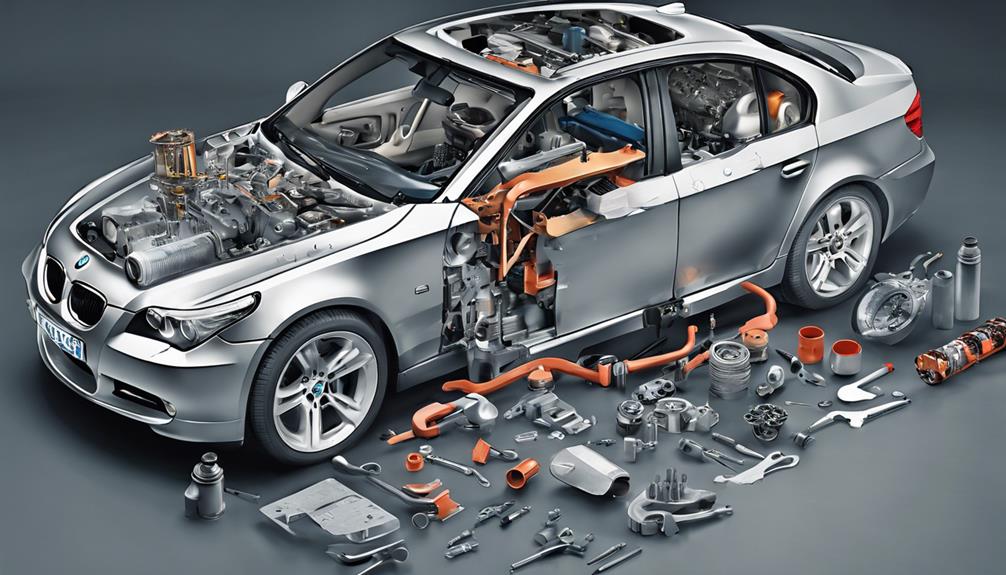
High maintenance costs associated with BMW E60 models often catch owners off guard, requiring careful budgeting and strategic planning to navigate effectively. When it comes to owning a BMW E60, be prepared for some hefty bills to keep your luxury ride in top shape. Here are some reasons why maintaining these vehicles can put a dent in your wallet:
- Complex Engineering: The intricate design of BMW E60 models means that repairs aren't only labor-intensive but also require specialized knowledge and tools, increasing maintenance costs.
- Control Arm Failures: Control arm issues are common in BMW E60 cars, leading to poor handling and uneven tire wear. Replacing control arms can be a pricey affair.
- Fuel System Problems: Fuel system components in E60 models are intricate and expensive to repair or replace, contributing to the high maintenance costs.
- Regular Maintenance: Skipping routine maintenance can lead to more significant problems down the road, costing you even more in repairs. Stay on top of scheduled services to avoid surprises.
Owning a BMW E60 is like having a high-maintenance friend – they require constant attention, but the rewards can be worth it for those who desire the prestige and performance they offer.
Potential Depreciation
When considering the potential depreciation of BMW E60 models, one must weigh various factors that can greatly impact the resale value over time. BMW E60 models are notorious for their steep depreciation curve, with some losing up to 60% of their value in the first five years.
High maintenance costs, reliability concerns, and shifts in market demand all contribute to this significant loss in value. Depreciation rates can fluctuate based on factors such as mileage, overall condition, service history, and prevailing market trends.
It's crucial to note that any upgrades or modifications that stray from the stock configurations can further decrease the resale value. Additionally, the perception of reliability issues associated with BMW E60 models among potential buyers can also play a role in determining depreciation.
Frequently Asked Questions
Is the BMW E60 a Reliable Car?
You might think the BMW E60 is reliable, but watch out for fuel issues, control arm failures, sunroof seal woes, brake booster troubles, and noisy windows. Stay vigilant for these quirks for a smoother ride.
What Is the Main Problem With BMW 5 Series?
The main problem with BMW 5 Series is its fuel-related issues like faulty thermostats and defective fuel pumps. These can cause headaches. Keep an eye on maintenance to avoid getting stranded!
What Engine Does a BMW E60 Have?
In a BMW E60, you'll find a variety of engines, such as the N52, N54, N62, and N63. The N52 is a smooth inline-6, while the N54, a spicy twin-turbo inline-6, brings on the performance. V8s like the N62 and N63 offer a refined power punch.
Will the BMW E60 Become a Classic?
You might be surprised to learn that the BMW E60 has the potential to become a classic. With its unique design and performance, as it ages and becomes rare, its desirability among collectors and enthusiasts could soar.
Conclusion
So, there you have it – the common problems with the BMW E60. From rod bearings to vanos pump issues, this car definitely has its fair share of quirks.
But with timely oil changes, using the correct oil type, and being prepared for high maintenance costs, you can stay ahead of the game.
Just remember, owning a BMW E60 may come with some headaches, but the driving experience is worth it in the end.





